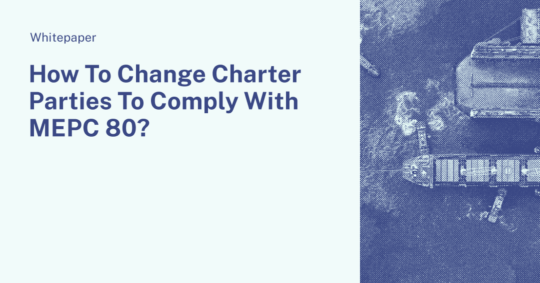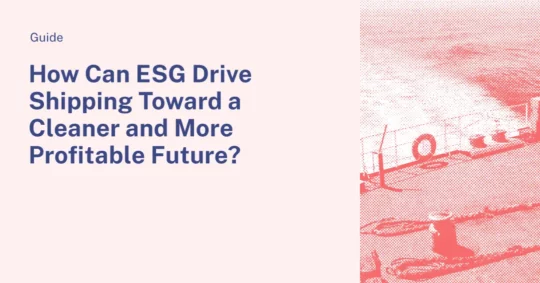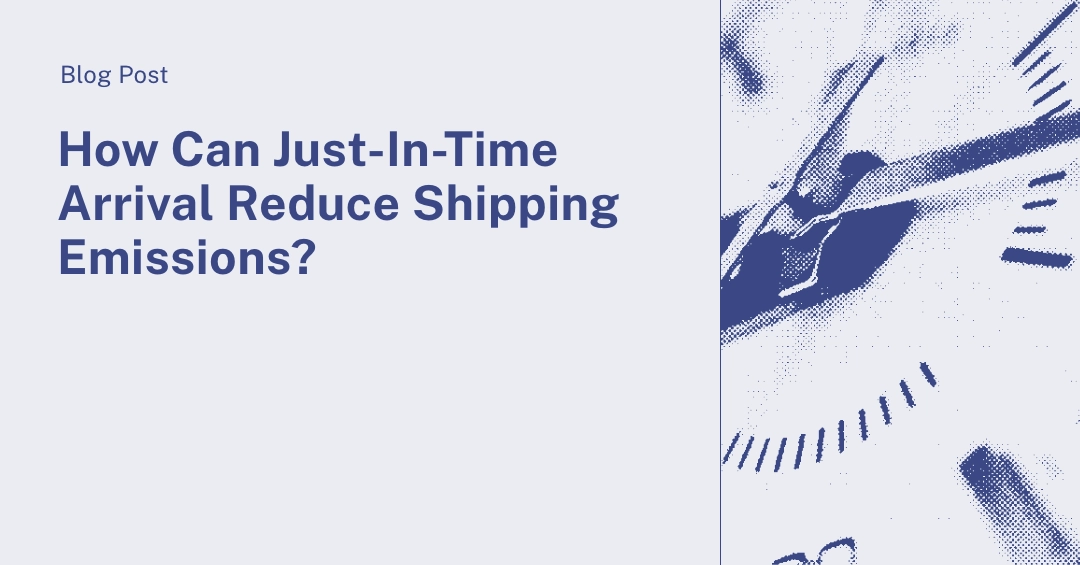“This is a burning platform. There is a need today to change the way the industry operates … We’ve worked on things like technical efficiency, operational efficiency, and driving that into the market, and we’ve seen really positive returns. 5 to 10% savings in terms of fuel and CO2, but we need to unlock that additional 20%. That’s where the huge opportunity is, and that’s where we’ve created the platform that can unlock bigger change over the course of time, that can unlock future fuels, wind propulsion, ESD implementation, and actually fix the value chain around ships.”
– Matt Heider, CEO, Nautilus Labs
On July 6, we hosted a webinar to discuss the future of charter parties. Moderated by Marina Hadjipateras from TMV, Nautilus’s CEO, CTO, and CDO explored the limitations of current commercial frameworks and the negative financial and environmental implications these have brought on the shipping industry. Leveraging advancements in machine learning, the panel talked about using machine learning-based data streams to implement new frameworks within charter parties to align incentives between owners and charterers and increase profits while bringing the industry closer to its decarbonization goals.
The webinar looked at the following key ideas:
1. Outdated charter party agreements: The panel discussed how traditional charter party agreements were created in a different era, hindering collaboration, efficiency, and emission reduction efforts.
2. Misaligned industry incentives: Panelists highlighted the inherent misalignment of incentives between owners and charters in the industry. The absence of proper incentivization for maximizing efficiency and reducing emissions leads to inefficiencies, excess fuel consumption, and increased emissions.
3. Data and information silos: The industry’s reliance on outdated data and limited information poses challenges in making informed decisions, particularly in speed optimization and performance management. Real-time, accurate data plays a crucial role in driving efficiency and reducing fuel consumption.
4. Collaboration as the path forward: The webinar underscored the importance of collaboration among stakeholders in the shipping industry. Nautilus’s Green Charter unlocks transparency and trust between counterparties by using data as a source of truth to empower collaborative efforts that lead to proactive vessel maintenance, optimized voyage planning, and better decision-making.
Overall, the webinar highlighted the significance of transforming charter parties and the implications of doing so for a more sustainable future. New technologies like Green Charter and embracing stakeholder collaboration will create more efficient ways of working for a more profitable and greener ocean supply chain.
Submit the form below to access the full webinar:


